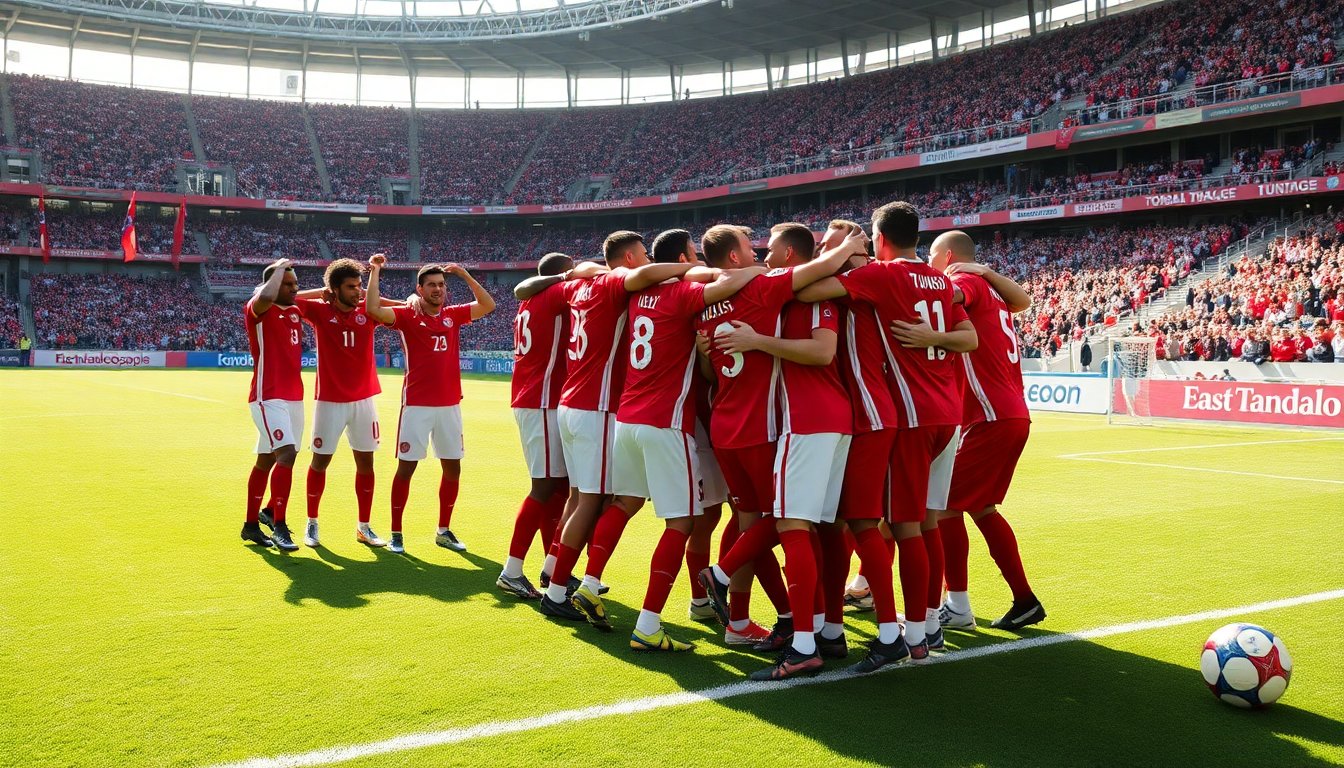Table of Contents
Tunisia has made history by becoming the second African nation, following Morocco, to qualify directly for the highly anticipated FIFA World Cup 2026 in North America. This achievement was secured thanks to a decisive goal from Mohamed Ali Ben Romdhane in the dying moments of their match against Equatorial Guinea, which ended in a 1-0 victory for the Carthage Eagles. Tunisia’s qualification stands as a testament to their determination and skill throughout the qualifiers.
Match Overview and Key Moments
The match, held in Malabo, was a true test of Tunisia’s resilience and strategy. The victory solidified their position at the top of Group H, with an impressive total of 22 points from eight matches, placing them ten points ahead of Namibia. Despite having one game in hand, Namibia cannot catch up with Tunisia’s tally. Ben Romdhane’s goal came in the 94th minute, showcasing not only his striking ability but also his awareness of the game’s dynamics. The midfielder, who plays for the prestigious Al Ahly club, demonstrated excellent positioning and timing, ensuring he was ready to capitalize on the opportunity presented by his teammate, Firas Chaouat.
Reflecting on the match, Ben Romdhane highlighted his confidence in Chaouat’s ability to navigate challenging circumstances. The midfielder’s quick thinking and decisive action were pivotal in securing Tunisia’s qualification, underscoring the importance of teamwork and strategic play in high-pressure situations.
Tunisia’s Journey to the World Cup
This marks Tunisia’s seventh qualification for the World Cup, a remarkable feat for a nation striving to enhance its footballing reputation on the global stage. Despite their previous record of only three victories in 18 World Cup matches, the team is determined to improve its standing and make a significant impact in the tournament. Their journey has been a rollercoaster of emotions, featuring numerous challenges, including navigating tough matches and adapting to various game conditions.
Coach Sami Trabelsi, a former centre-back who captained Tunisia in the 1998 World Cup, has played a crucial role in shaping the team’s identity and strategy. Under his guidance, the players have developed a strong sense of unity and purpose, which has been instrumental in their successful campaign. The blend of experience and emerging talent within the squad bodes well for their future prospects.
Looking Ahead: What to Expect from Tunisia
As Tunisia prepares for the World Cup in the United States, Canada, and Mexico, they face a range of challenges. With Africa guaranteed nine places in the tournament, there is potential for the number of qualifiers to increase, especially with upcoming intercontinental playoffs. Tunisia’s management and players are acutely aware of the need to refine their strategies and enhance their gameplay to ensure they advance past the group stage this time.
The team’s recent performances in qualifiers suggest they possess the potential to surprise their opponents and achieve more than mere participation. With their sights set on improving their World Cup record, the Carthage Eagles are poised to take the next step in their footballing journey. Anticipation surrounding their upcoming matches is palpable, as fans and analysts alike look forward to seeing how Tunisia will fare against the world’s best teams.


